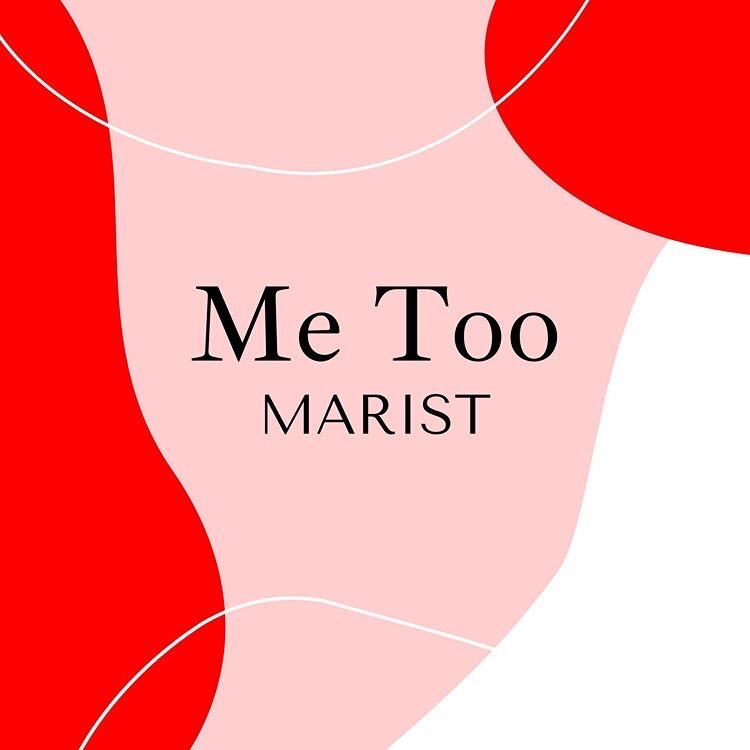Me Too Marist Instagram Account Helps To Fight Rape Culture on Campus
Me Too Marist, an organization dedicated to giving a platform via Instagram to tell their stories, is an important group that forces us to recognize the truth about sexual assault and harassment on campus.
Content Warning: This piece contains discussion of sexual assault, sexual abuse, sexual violence and rape.
Account Logo for Me Too Marist Instagram. Source: Me Too Marist
In 2006, Tarana Burke first coined the term “Me Too” to support survivors of sexual violence. In 1997, she spoke to a 13-year-old victim of sexual abuse, which inspired her to advocate for the pervasiveness of sexual assault. Eleven years later, the hashtag #MeToo went viral for survivors of sexual assault to share their stories.
Unfortunately, the need for this awareness remains, as 1 in 6 U.S. women “have been the victims of attempted or complemeted rape.” And this is only what has been recorded. At Marist College, many female students represent the 18-24 age range, meaning they are at a higher risk of sexual violence. Some of us have even said #MeToo here at Marist.
On Aug. 10, an Instagram account with the handle @metoomarist emerged for victims to anonymously share their stories through a Google form in the account’s bio. The page currently has nearly 1,200 followers with over 80 posts ranging from sexual discrimination to assault, but they all confirm that there is a real issue on campus that we must address.
The creators of Me Too Marist are “a small team of individuals” that hope to partner with similar, established on-campus organizations like the It’s On Us Marist Chapter, Marist Femme and Fox Pride. Me Too Marist estimates that they receive around 10 submissions a week culminating in “hundreds of stories, messages, and emails” since the account’s origin.
At its start, the organizers of Me Too Marist anticipated a few submissions and, at most, the attention of a small portion of the Marist community. Within just the first few days, the account surpassed this goal and has been growing ever since. Despite the response, their goal remains to share survivors’ stories to a receptive audience.
When I discovered the account, it shed light on the reality that sexual harassment and assault exist on our campus. If I felt uncomfortable reading these stories, I can’t imagine how the survivors felt living it. Reading their references to the halls we walk as places they will never see the same is something that inspired me to write about the good I believe this account is doing.
While most followers are supportive and understanding of the fact that the account is still new and trying to establish itself, it unfortunately still faces pushback from people who have “actively taken a stance against [them] and the survivors of [the] page.”
This criticism likely stems from controversy surrounding the account after an incident on Aug. 4 when Me Too Marist posted a story in which the author suggested that the 2019-2020 SGA president had committed sexual misconduct. However, the victim later clarified that this was a mistake.
On Aug. 15, @metoomarist issued an apology post and promised to improve efforts toward accuracy in the future aand include a clarification from the survivor about the incident. While some may interpret this as a wrongful accusation and cite evidence that approximately 7.1% of reported assault cases are false reports, critics need to consider the entire context of the situation before dismissing the account on solely this issue.
False accusations are serious when they do occur, but their prevalence is severely overestimated. Furthermore, this is an Instagram account, not a legal document, so followers must be wary of inaccuracies in content, despite the page’s aim for accuracy. While I’m aware of the serious effects this accusation could have on the former president, it is worth noting both the victim and account made corrections.
Me Too Marist is doing something about the rape culture on campus, and one incident isn’t enough to dismantle the progress it’s made in sharing survivor’s stories. We all have a responsibility to our campus community, which includes critical self-evaluation in how we view survivors and allies.
The compulsion to victim blame or to engage in “whataboutism” is a dangerous path to go down, but it can be avoided with being proactive in prevention, education and reform. If we can collectively begin to take these actions, we can and will see change in how we handle these situations, and Me Too Marist is an invaluable resource for this. The threats and intimidation they have been met with are an unfortunate side effect of the conversation they are trying to have. I want to close with what Me Too Marist has to say about the pushback, as it is an all-encompassing message of their work:
“We will not be silenced. We will not stop fighting. We believe our survivors and we are here to give them a voice to tell their stories. We stand with survivors and no amount of threats or intimidation tactics will stop us from fighting for survivors’ rights to be heard and for a safer campus environment for all.”
